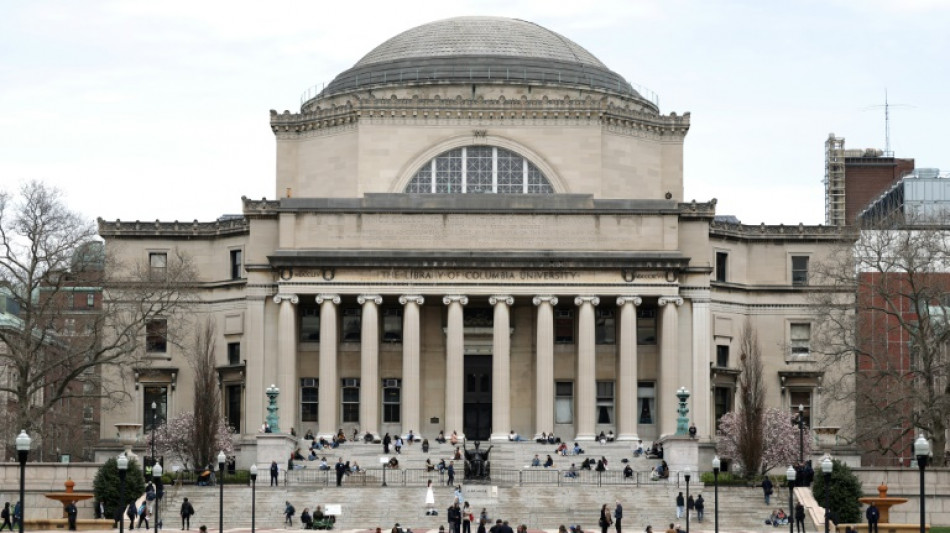
-
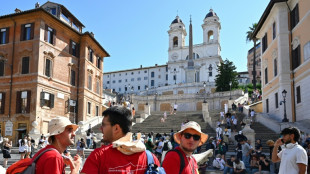 Thousands of young Catholics converge for grand Pope Leo vigil
Thousands of young Catholics converge for grand Pope Leo vigil
-
SpaceX Crew Dragon docks with International Space Station

-
 New push to reach plastic pollution pact
New push to reach plastic pollution pact
-
US do talking in pool after Phelps, Lochte slam worlds performance

-
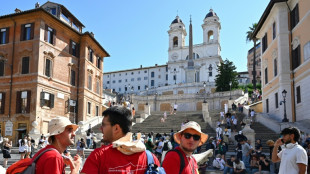 Up to a million young Catholics expected for grand Pope Leo vigil
Up to a million young Catholics expected for grand Pope Leo vigil
-
New push to reach plastic polution pact

-
 Second seed Fritz ends Canadian hopes at ATP Toronto Masters
Second seed Fritz ends Canadian hopes at ATP Toronto Masters
-
Japan sweats through hottest July on record

-
 Jefferson-Wooden, Bednarek blaze to 100m titles at US trials
Jefferson-Wooden, Bednarek blaze to 100m titles at US trials
-
Son Heung-min to leave Tottenham this summer after decade

-
 Richardson 'domestic violence' drama overshadows US trials
Richardson 'domestic violence' drama overshadows US trials
-
Bid to relocate US Space Shuttle Discovery faces museum pushback

-
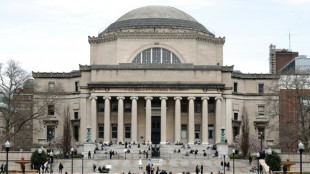 Academics warn Columbia University deal sets dangerous precedent
Academics warn Columbia University deal sets dangerous precedent
-
Sevastova topples Pegula to book date with Osaka, Swiatek advances in Montreal

-
 Former Olympic champion Mu-Nikolayev fails in worlds bid
Former Olympic champion Mu-Nikolayev fails in worlds bid
-
Sensible and steely: how Mexico's Sheinbaum has dealt with Trump
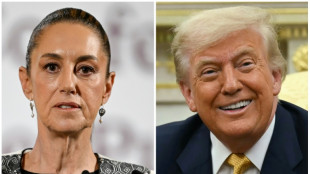
-
 Young leads at weather-hit PGA Wyndham Championship
Young leads at weather-hit PGA Wyndham Championship
-
US sprint star Richardson out of trials following arrest

-
 Rublev, Tiafoe sweat out three-set wins in Toronto
Rublev, Tiafoe sweat out three-set wins in Toronto
-
Ex-porn actor to be Colombian equality minister
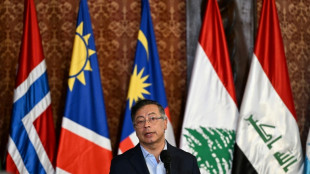
-
 Olympic swim greats Phelps, Lochte, rip US World Championships performance
Olympic swim greats Phelps, Lochte, rip US World Championships performance
-
Brazilians burn Trump effigies as tariffs spark anger
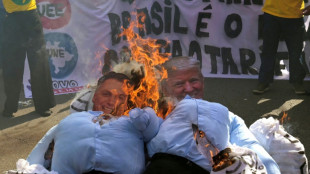
-
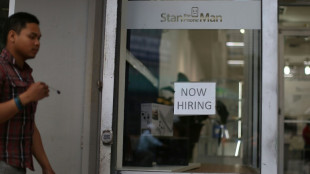 Global stocks fall sharply on weak US job data, Trump tariffs
Global stocks fall sharply on weak US job data, Trump tariffs
-
Lyles, Richardson scratch from 100m at US trials

-
 NFL Commanders win key vote in quest for new stadium
NFL Commanders win key vote in quest for new stadium
-
US Fed governor to resign early at critical time for central bank
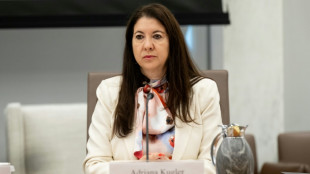
-
 US keeper Turner joins Lyon from Notts Forest, loaned to MLS
US keeper Turner joins Lyon from Notts Forest, loaned to MLS
-
Epstein accomplice Maxwell moved to minimum security Texas prison

-
 Sevastova shocks fourth-ranked Pegula to book date with Osaka
Sevastova shocks fourth-ranked Pegula to book date with Osaka
-
End of the chain gang? NFL adopts virtual measurement system

-
 Deep lucky to escape Duckett 'elbow' as India get under England's skin
Deep lucky to escape Duckett 'elbow' as India get under England's skin
-
Search intensifies for five trapped in giant Chile copper mine
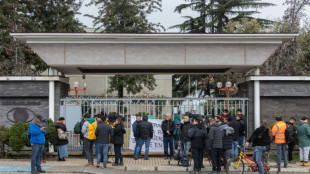
-
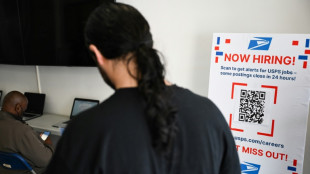 Trump orders firing of US official as cracks emerge in jobs market
Trump orders firing of US official as cracks emerge in jobs market
-
Trump deploys nuclear submarines in row with Russia

-
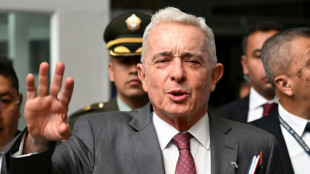 Colombian ex-president Uribe sentenced to 12 years house arrest
Colombian ex-president Uribe sentenced to 12 years house arrest
-
Wave of fake credentials sparks political fallout in Spain

-
 Osaka ousts Ostapenko to reach WTA fourth round at Canada
Osaka ousts Ostapenko to reach WTA fourth round at Canada
-
Rovanpera emerges from home forests leading Rally of Finland

-
 Exxon, Chevron turn page on legal fight as profits slip
Exxon, Chevron turn page on legal fight as profits slip
-
Prosecutors call for PSG's Achraf Hakimi to face rape trial

-
 Missing Kenya football tickets blamed on govt protest fears
Missing Kenya football tickets blamed on govt protest fears
-
India's Krishna and Siraj rock England in series finale

-
 Norris completes 'double top' in Hungary practice
Norris completes 'double top' in Hungary practice
-
MLB names iconic Wrigley Field as host of 2027 All-Star Game

-
 Squiban doubles up at women's Tour de France
Squiban doubles up at women's Tour de France
-
International crew bound for space station

-
 China's Qin takes 'miracle' second breaststroke gold at swim worlds
China's Qin takes 'miracle' second breaststroke gold at swim worlds
-
Siraj strikes as India fight back in England finale

-
 Brewed awakening: German beer sales lowest on record
Brewed awakening: German beer sales lowest on record
-
Indonesia volcano belches six-mile ash tower

| RBGPF | 0% | 74.94 | $ | |
| SCU | 0% | 12.72 | $ | |
| CMSC | 0.09% | 22.87 | $ | |
| BCC | -0.55% | 83.35 | $ | |
| NGG | 1.99% | 71.82 | $ | |
| BTI | 1.23% | 54.35 | $ | |
| CMSD | 0.34% | 23.35 | $ | |
| RELX | -0.58% | 51.59 | $ | |
| SCS | -1.47% | 10.18 | $ | |
| GSK | 1.09% | 37.56 | $ | |
| JRI | -0.23% | 13.1 | $ | |
| RIO | -0.2% | 59.65 | $ | |
| VOD | 1.37% | 10.96 | $ | |
| AZN | 1.16% | 73.95 | $ | |
| RYCEF | 0.07% | 14.19 | $ | |
| BCE | 1.02% | 23.57 | $ | |
| BP | -1.26% | 31.75 | $ |

Academics warn Columbia University deal sets dangerous precedent
Columbia University's $200 million agreement with President Donald Trump's administration marks the end of a months-long showdown, but academics warn it is just the first round of a government "assault" on higher education.
Academics from Columbia and beyond have expressed concerns that the deal -- which makes broad-ranging concessions and increases government oversight -- will become the blueprint for how Trump brings other universities to heel.
The New York institution was the first to be targeted in Trump's war against elite universities, for what the US president claimed was its failure to tackle anti-Semitism on campus in the wake of pro-Palestinian protests.
It was stripped of hundreds of millions of dollars of federal funding and lost its ability to apply for new research grants. Labs saw vital funding frozen, and dozens of researchers were laid off.
But Columbia last week agreed to pay the government $200 million, and an additional $21 million to settle an investigation into anti-Semitism.
According to Ted Mitchell, president of the American Council on Education, the lack of due process -- with the government slashing funding before carrying out a formal investigation -- left Columbia in an "untenable position."
Columbia law professor David Pozen agreed, saying the "manner in which the deal was constructed has been unlawful and coercive from the start" and slamming the agreement as giving "legal form to an extortion scheme."
- Federal oversight -
The deal goes beyond addressing anti-Semitism and makes concessions on international student admissions, race and ethnicity considerations in admissions and single-sex spaces on campus, among other issues.
Columbia also agreed to appoint an independent monitor to implement the deal, share ethnicity admissions data with the government and crack down on campus protests.
Many of the provisions "represent significant incursions onto Columbia's autonomy," said Pozen.
"What's happened at Columbia is part of a broader authoritarian attack on civil society," he said, pointing to similar pressures on law firms and media organizations to fall in line.
According to the law professor, the deal "signals the emergence of a new regulatory regime in which the Trump administration will periodically and unpredictably shake down other schools and demand concessions from them."
In the coming weeks, Pozen said he expected the "administration will put a lot of pressure on Harvard and other schools to follow suit."
Harvard University has pushed back against the government, filing a lawsuit in a bid to reverse sweeping funding cuts.
But Steven Levitsky, a professor of government at Harvard, said that "in terms of academic freedom and in terms of democracy, the (Columbia) precedent is devastating."
- 'First round' -
Education Secretary Linda McMahon said she hoped the Columbia deal would be a "template for other universities around the country."
On Wednesday, McMahon announced a deal with Brown University to restore some federal funding and end ongoing investigations after the Ivy League school agreed to end race considerations in admissions and adopt a biological definition of gender.
Brown President Christina Paxson admitted "there are other aspects of the agreement that were not part of previous federal reviews of Brown policies" but were "priorities of the federal administration."
Harvard is reportedly considering forking out $500 million to settle, according to the New York Times.
Others have made smaller concessions to appease the government, with Trump's alma mater the University of Pennsylvania banning transgender women from competing in women's sports, and the University of Virginia's head resigning after scrutiny over its diversity programs.
Brendan Cantwell, a professor at Michigan State University who researches the history and governance of higher education, said government interference in universities "has not happened at scale like this, probably ever in American history."
While some university staff see striking an agreement as the quickest way to reopen the federal funding spigot, Cantwell warned that concessions such as sharing ethnicity data from admissions could be "weaponized" and provide fodder for future probes.
Levitsky agreed, saying: "Extortionists don't stop at the first concession. Extortionists come back for more."
"There's a very high likelihood that this is just the first round," he said.
Pozen noted that it will be harder for "major research universities to hold the line" compared to smaller colleges which are less reliant on federal funding.
But Levitsky still urged Harvard to stand its ground and "fight back," including in the courts.
"Fighting an authoritarian regime is costly, but that's what we have to do," he said. "This is an unprecedented assault, and universities need to work together."
G.AbuHamad--SF-PST
